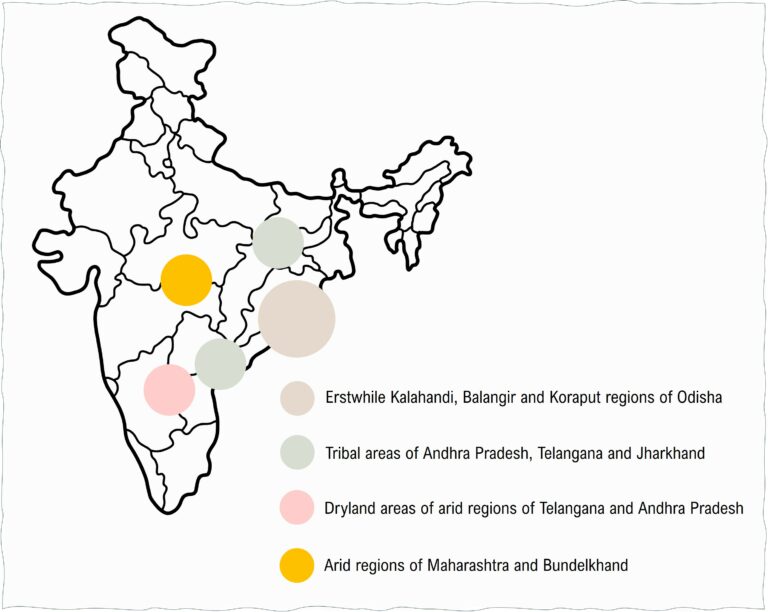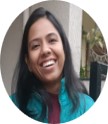Get in Touch
We are here to help you 7 days a week and respond within 24 hours. Plus, you can find most answers to your questions right on FAQ page.
Home >
Fellowship
The key objective of this fellowship is to encourage, inspire and support young people to engage with and understand the core issues of development in which Yugandhar spent his lifetime. The fellowship provides an opportunity for the fellows to undertake field research with communities exploring the issues of interest in depth. The focus areas of the fellowship include land, labour and natural resource rights, especially in tribal areas; issues of forest fringe communities; issues of droughts and vulnerability; intersection of gender with these issues; and parity of public investments - within the larger context of rainfed areas. The fellows will be guided and mentored by an advisory group having a long standing contribution in the area of research. The study report will be published by WASSAN.
Sri. Bukkapuram Nadella Yugandhar widely known as B N Yugandhar was a former IAS officer who inspired many people in his lifetime to commit to the agenda of rural development. A scholar on land rights, as an active supporter of people working on bonded labor issues, as a champion of tribal areas’ development and their rights, as a person deeply committed to the issues of droughts and drought prone areas, and as a champion of community based rehabilitation and rights of the disabled, as a champion of decentralization of planning, Yugandhar inspired many people and touched many lives. Participatory Watershed Development Program, MGNREGA and decentralization of planning were his flagship achievements that changed the course of public investments in those domains.


A Mentor can be defined as the details and map that enable us to reach our long-term goals. It’s important to understand what one wants, where one is going, and how one might get there. A mentorship will focus on Mentors supporting the fellows in identifying the areas of improvement based on the reflection assessment taken by them during the fellowship period and decoding the way forward to achieve the goals. An individual mentor shall be assigned to the fellows for the initial 6 months during the fellowship, it aims at strengthening the bond between the Mentor and the Mentee in future also.
GUIDANCE AND SUPPORT
Mentors shall provide continuous guidance and support to fellows by providing subject matter expertise in relevant areas of research, such as land rights, natural resource management, tribal issues, gender equality, and public investment in rainfed areas throughout their field research period, helping them navigate challenges and make informed decisions.
FACILITATION OF LEARNING
Mentors shall facilitate a conducive learning environment for fellows, encouraging critical thinking, reflection, and exploration of complex developmental issues.
MEETING MEETINGS
Mentors shall discuss progress, address concerns, and provide feedback on research methodologies and findings during the regular mentorship meetings scheduled by the fellows.
NETWORKING AND COLLABORATION
Mentors shall provide networking opportunities for fellows, connecting them with relevant stakeholders, experts, and community members to enrich their research experience.
CAREER PATH FOR FELLOW
Mentors shall support the career path of the fellow after the fellowship period and the learning may be overcome to fulfill his goal. Mentors may extend support to fellows in their professional development, offering advice on career paths, further education opportunities, and skill enhancement relevant to their research interests during the fellowship period
ETHICAL CONDUCT
Mentors shall uphold ethical standards and ensure that fellows adhere to ethical guidelines in their research activities, including obtaining necessary permissions and consent from stakeholders.
PUBLICATION SUPPORT
Mentors shall guide fellows in preparing their research findings for publication, guiding writing, editing, and formatting research reports or articles.
ADVOCACY AND IMPACT
Mentors shall empower fellows to translate their research findings into actionable recommendations and advocate for positive change in policies and practices related to rainfed agriculture and rural development.

AARTI RAIGAR
Aarti Raigar was joined as 2nd Batch of BN Yugandhar Rainfed Agriculture Fellowship Programme of WASSAN. Aarti hails from Madhya Pradesh, India’s agricultural heartland, and holds a Master’s degree in Computer Applications. Her interest in sustainable agriculture was ignited when she volunteered at Anant Mandi, an organic farmers’ market. This experience sparked her passion for organic farming, leading her to explore the sector further through field visits and collaborations with organizations like Ekta Parishad. Aarti has developed a deep understanding of sustainable agricultural practices despite not having a formal degree in agriculture. She enhanced her expertise by completing a course on women’s land rights, focusing on empowering indigenous communities and studying collective farming models. Aarti’s practical experience includes participating in ‘Beejotsav’ and working with ‘Go Rurban’, gaining valuable insights into farming ecosystems, land ownership, sustainable farming techniques, and gender dynamics in agriculture.
As a BN Yugandhar Rainfed Agriculture Fellow, Aarti will research on community-based collective practices in the Bundelkhand region. Her work centers on collective farming models, seed and water conservation, and addressing the challenges faced by local communities due to limited water resources.

SANKET KALE
Sanket Kale comes from Beed district in Maharashtra’s Marathwada region, which faces frequent droughts. He witnessed farmers’ struggles and water scarcity while growing up. These experiences motivated him to study humanities. He completed his BA Sociology at Fergusson College, Pune. His strong understanding of sociology led him to seek practical field experience. He chose TISS (Tata Institute of Social Sciences) to pursue an MA in Social Work, specializing in Community Organization and Development Practice. TISS offered excellent academics, fieldwork opportunities, and talented peers who helped shape his personality and understanding. To understand politics better, Sanket worked as a Political Consultant during the Maharashtra Assembly Elections after completing his master’s degree. This role taught him how democracy and elections work at the grassroots level.
Under the B.N. Yugandhar Fellowship, he studies the need for designated grazing corridors for the pastoral Dhangar community in Maharashtra’s Sangli district. His research examines available grazing lands, studies how their loss affects shepherds’ livelihoods, and explores the need and benefits of designated grazing corridors. Sanket aims to convince policymakers to protect the Pastoral Dhangars’ traditional pastoral lifestyle and their grazing rights.

MANORANJAN SWAIN
Manoranjan hails from Jagatsinghpur district of Odisha and completed his MSW from Utkal University. His transformative journey began with two influential years as a Gandhi Fellow before venturing into various roles with different NGOs like Gram Swaraj, NCAS, Project Potential, Ahimsagram and Thread. Through these experiences, he gained a deep understanding of the lives and livelihoods of tribals in Odisha, which further strengthened his passion for advocating for tribal rights. He also undertook an extensive cycling expedition that took him around 5000 kilometers across eastern and southern India. In the process, he immersed himself in the aspirations of the youth and explored both rural and urban lifestyles. However, he constantly sought opportunities to conduct research on the rights of Adivasi communities. This search led him to the BN Yugandhar Rainfed Agriculture Fellowship. Not knowing BN Yugandhar at first, he later discovered this person’s remarkable commitment to marginalized tribal communities. When he was selected for the fellowship, Manoranjan focused on researching land rights and revenue records of the land in Kalahandi, Odisha. This opportunity promises to provide invaluable insights into rural community food security, assessing the impact of millets, promoting positive change within the community, and deepening his understanding of legal research practices.
We are here to help you 7 days a week and respond within 24 hours. Plus, you can find most answers to your questions right on FAQ page.
Plot No. 685 & 686, Street No. 12, Narasimha Swamy Colony,
Nagole, Hyderabad – 500 068, Telangana, India
Mail: mail@wassan.org
Watershed Support Services and Activities Network (WASSAN) © 2025 by WASSAN is licensed under CC BY-SA 4.0
@2025 | Watershed Support Services and Activities Network (WASSAN)